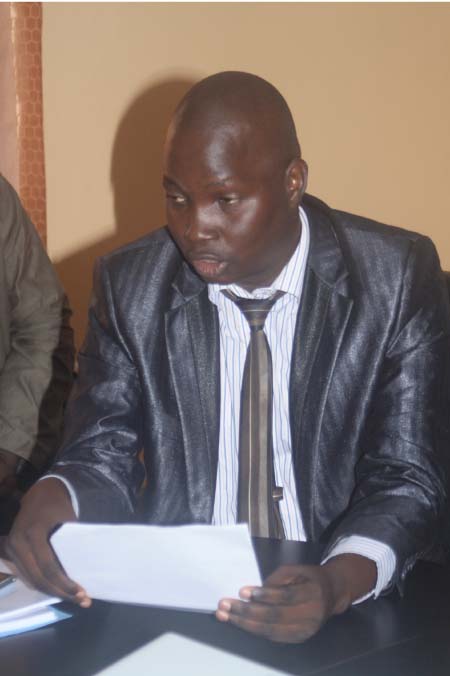
(Issue, Monday, August 22, 2016)
Senior
insurance officials have recently undergone a two-day training course meant to
refresh and enhance their knowledge and understanding of the Brown Card
Insurance Scheme, an extra-territorial third party motor insurance policy.
The
Brown Card, introduced in 1982, is issued to vehicles driving from their
country to any Ecowas member state, and it covers third party liability for
injury, death and property damage caused in the visiting country.
The
seminar to edify motor and claims managers responsible for Brown Card matters
in their respective companies was organised by the Gambia National Bureau of
Ecowas Brown Card. It ended at the
bureau’s secretariat in Banjul on Friday.
Speaking
on the occasion, Saihou Samba, secretary general of the national bureau, said
the objective of the training course is to enhance the participants’
understanding of the operations and procedures of the Brown Card scheme.
“They
are the ones responsible for Brown Card matters in their offices, and as such
they should be periodically educated on the developments and practices of the
scheme. This is our responsibility as
the national bureau, and it will enable the participants to extend the
information to their clients,” he said.
Mr
Samba explained that the Brown Card is an instrument of regional integration,
as it facilitates free movement of goods and persons within Ecowas.
“The
holder of the card is protected in case of accident in any Ecowas member state,
and his insurance company would pay all genuine claims arising from third party
liabilities,” he elaborated.
Samba
said his office, the national bureau, provides assistance to motorists when
accident occurs in The Gambia. The bureau acts as both the handling and issuing
agency under the Brown Card scheme. As
an issuing agency, the bureau makes the Brown Card available to resident
motorists; and it carries out investigations and settlement of claims arising
from accidents incurred by the Brown Card holder, as a handling agency.
The
secretary general of the national bureau said increasingly, many vehicle owners
now understand that the Brown Card is a requirement to cross the common borders
within the Ecowas member state, and thus acquire it before travelling.
“However,
since most of the motorists do not travel outside The Gambia, they do not buy
the Brown Card even though they are still exposed to the Brown Card risks,” Mr
Samba said.
“This
is because a motorist from a foreign country can cause damages to your vehicle,
and it is the Brown Card bureau that is expected to process your claim and make
sure you are adequately compensated for the damages.”
He
pointed out that, for this reason, the national bureau is working towards
making the Brown Card cover automatic for all motorists.
“This
will ensure that third party victims of accidents within the sub region are
promptly and adequately compensated,” Samba said.
Dawda
Sarge, chairperson of the national bureau, said the two-day training course
mainly focused on the four documents that govern the operations of the Brown
Card scheme in The Gambia and the sub-region.
The
documents that powered the effective implementation of the Brown Card scheme
are the Ecowas Brown Card protocol, the supplementary protocol, the
inter-bureau agreement, and the Harmonised Convention on Brown Card Claims.
Mr
Sarge said the Ecowas Brown Card protocol is like the constitution of the
scheme, but even so, a lot of the insurance practitioners do not know its
depth.
“So
a training like this would help highlight some of the provisions of the
protocol, so that they can better interpret the benefits of the Brown Card to
customers,” he explained.
“This
is particularly important on the side of the customers, because many of them
think that the Brown Card is merely for the border post security; when really
the benefits are greater than just a demonstration of the card to officers at
the border post.”
The
two-day training course on the Brown Card was conducted by Henry Jawo, a
seasoned insurance practitioner, who was said to be instrumental in setting up
the national bureau and has been heading it as secretary general until his
retirement last year.
His
successor, Mr Samba, was also a resource person.


